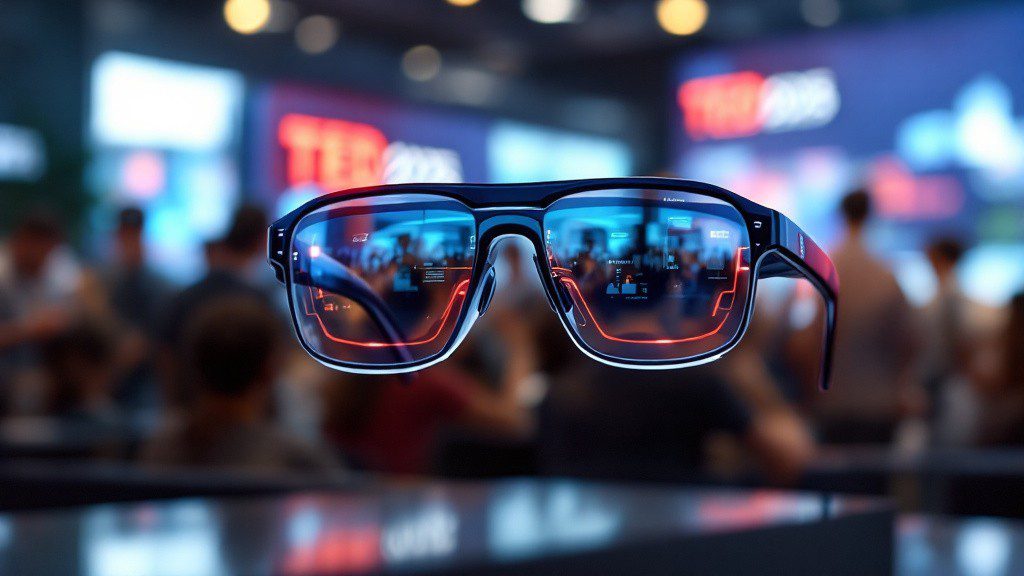At TED2025 in Vancouver, Google unveiled an innovative pair of AI-powered smart glasses featuring advanced heads-up display (HUD) technology. The prototype, demonstrated by Google’s Android XR team, represents a significant advancement in wearable computing, combining artificial intelligence with augmented reality capabilities.
During the live demonstration, Google’s Android XR head Shahram Izadi and product manager Nishtha Bhatia showcased the glasses’ impressive capabilities. The device successfully performed real-time translation from Farsi to English and demonstrated spatial awareness by precisely locating a misplaced hotel key card, displaying the information directly on the glasses’ lenses.
The technological foundation of these smart glasses rests on the Android XR platform, specifically designed for extended reality experiences. The glasses maintain a lightweight profile by working in conjunction with a smartphone, which handles the majority of computing tasks. This strategic design choice ensures extended battery life while enabling seamless access to smartphone applications through the glasses’ interface.
The HUD implementation reflects Google’s focus on practical functionality. Users interact with the Gemini AI assistant through a minimalist interface that displays responses in white text, while a blue indicator signals active audio input. What sets this system apart is its continuous environmental awareness – the AI assistant actively processes and remembers video and audio inputs, creating a searchable timeline of events.
This latest development builds upon Google’s Project Astra, initially revealed at Google I/O 2024. While Project Astra debuted as a phone-based multimodal AI assistant, the TED2025 demonstration illustrates Google’s vision for dedicated wearable devices that harness advanced AI capabilities.
The timing of this unveiling is particularly significant as major tech companies race to define the future of augmented reality eyewear. Meta and Snap have made notable strides in this space, with Meta developing HUD-enabled glasses and Snap launching its fifth-generation AR Spectacles. Google’s prototype demonstrates the company’s commitment to competing in this emerging market segment.
Beyond consumer convenience, these smart glasses hold promising therapeutic potential. The spatial memory recall feature could provide valuable assistance to individuals with cognitive challenges, including dementia patients, by helping them remember daily tasks and navigate their environment more effectively.
While Google has yet to announce a release date or product name, the TED2025 demonstration offers valuable insights into the company’s vision for the future of wearable computing. The prototype’s smartphone-dependent architecture and sophisticated AI integration suggest a careful balance between practical utility and technological innovation.
Source: Upload VR

